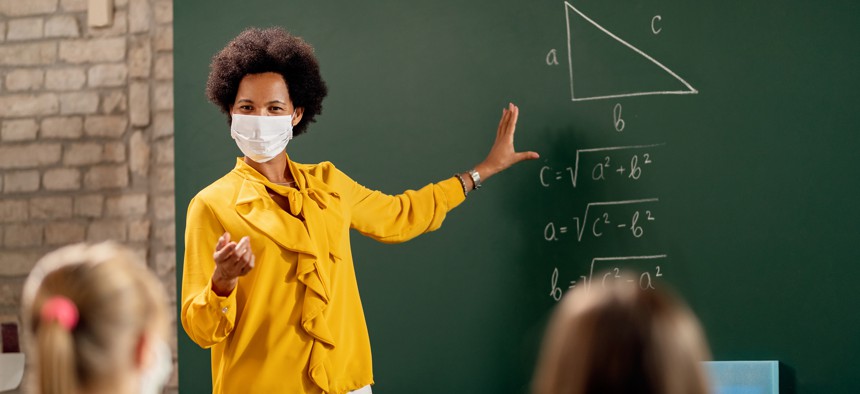Educators Want to Leave Their Jobs More Than Other Government Workers Do

istockphoto.com/Drazen Zigic
Half of teachers and staff say they feel stressed and burned out and more than a third say they want to quit, according to a new survey.
K-12 teachers and staff are more stressed, burnt out and anxious compared to other state and local employees, according to a new study by the MissionSquare Research Institute. More than one-third (37%) of K-12 employees surveyed say the pandemic is to blame for them considering a job change.
According to the findings, K-12 employees:
- Are more likely than other government workers to feel stressed (52% vs. 35%), burnt out (52% vs. 34%) and anxious (34% vs. 29%).
- Are significantly more likely than other government workers to say the pandemic has negatively impacted their finances (50% vs. 35%).
- Believe the risks of working during the pandemic are not on par with their compensation (59%), a sentiment that is higher than among other state and local workers (43%).
- Say working during the pandemic has made them consider changing jobs—higher than other state and local employees (27%).
- Say they worked more hours than before the pandemic because of extra time required for online/remote learning (73%), social distancing protocols/limitations on class size (45%), and increased meetings and communications with parents/students (42%) or other school staff (41%).
“The overall findings are troubling given that many jurisdictions were struggling to attract and keep teachers even before the pandemic,” Rivka Liss-Levinson, senior research manager at MissionSquare Research Institute, said in a statement. “The data tell us that educators are exhausted, working more hours and worried about their financial security. It would be highly detrimental to education if more than a third of the K-12 workforce indeed changed jobs.”
Liss-Levinson said state and local policy makers need to focus on areas where teachers are satisfied and address areas of concern in order to retain them.
Another thing educators are worried about is contracting Covid-19 as the new academic year starts in person for most school districts and as the delta variant surges nationwide. Many districts have implemented mask mandates for students and staff, but some states are banning them, especially in those led by Republican governors.
The Texas Supreme Court last Thursday temporarily blocked a school mask mandate in San Antonio, citing the governor’s authority on the matter. The court order is the latest in a battle between local governments and the state’s Republican leadership over public health regulations during the pandemic. However, some Texas school districts, like Dallas, have defied the governor’s mandate.
Arkansas Gov. Asa Hutchinson last month asked state lawmakers to consider allowing school districts to implement mask mandates. Hutchinson signed a bill prohibiting mandates statewide four months earlier, but later said he was concerned about rising Covid-19 cases among children. Arkansas lawmakers voted to keep the ban for schools in place.
The MissionSquare report results are based on a national survey of more than 1,200 state and local government employees fielded by Greenwald Research in May. The full report will be released in September. For a snapshot of the results click here.
Jean Dimeo is managing editor for Route Fifty.
NEXT STORY: Is It a Crime to Forge a Vaccine Card? And What’s the Penalty for Using a Fake?





